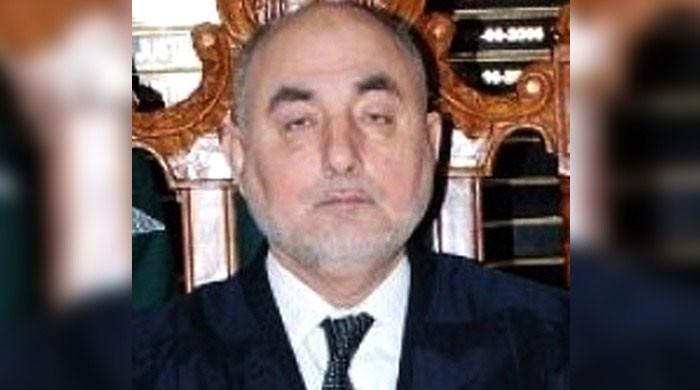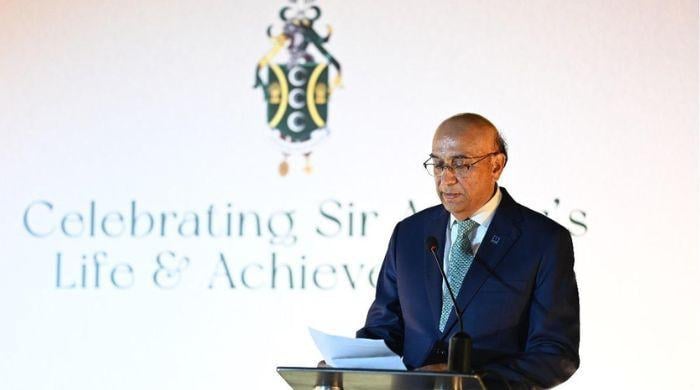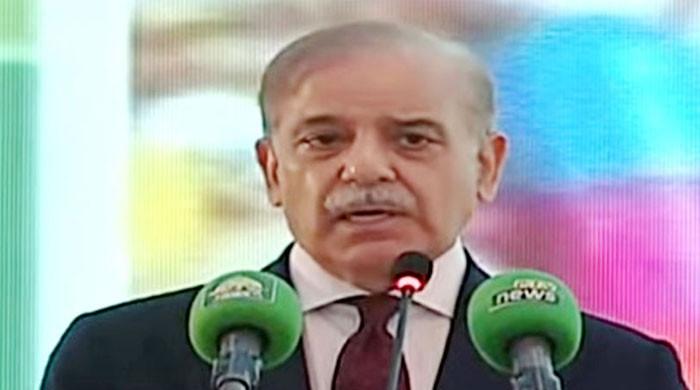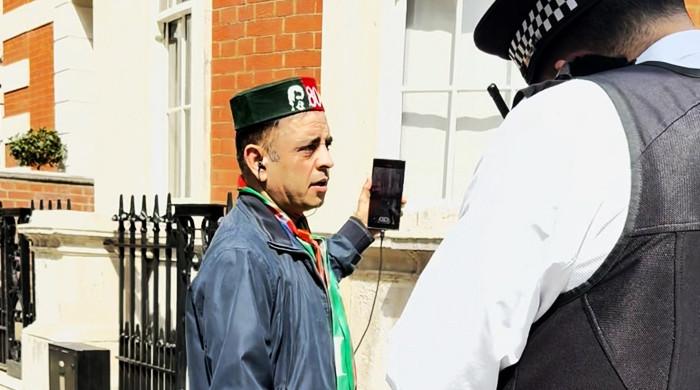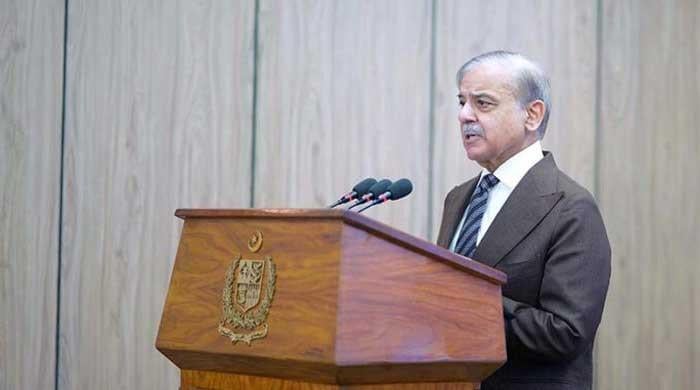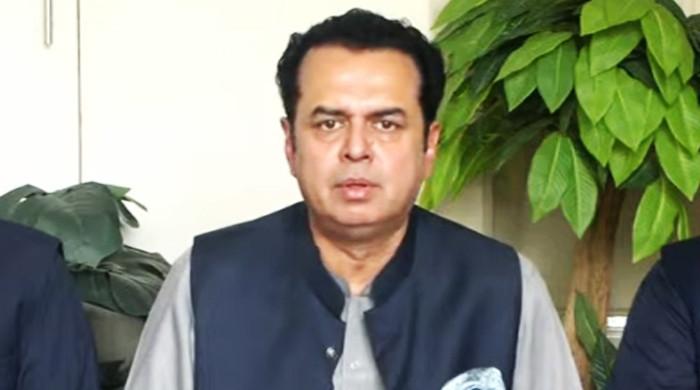Afghanistan's role as facilitator for India not acceptable: Khawaja Asif
Asif says terrorists do not need Pakistan for hideouts as they have ample space available in Afghanistan
October 25, 2017
ISLAMABAD: Afghanistan’s role as a facilitator for India is not acceptable to Pakistan, said Minister for Foreign Affairs Khawaja Asif in the Senate on Wednesday.
Asif said nearly 45 percent of Afghanistan’s territory was not under the control of Kabul and that Daesh was also present in two or three Afghan provinces located in that territory.
The foreign minister added that terrorists would not need Pakistan for their hideouts as they have ample space available in Afghanistan.
The foreign minister was referring to allegations levelled against the country on harbouring terrorists.
However, he said, Pakistan has managed to restore peace in its territory to a great extent and the number of drone strikes has decreased as compared to previous years.
“We have fought away the elements that were the cause of drone strikes in Pakistan.”
During his speech, Asif said Pakistan is not a superpower but is a nation which has sacrificed its people during the fight against terrorism. The foreign minister added Pakistan had agreed on reconciliation in the past but it was to no avail.
“We would be sent a list [of terrorists],” he said. “We have made the arrests [asked from us] and handed over.” He added the list provided to the Pakistani authorities has Haqqani on the top.
While talking about US' role in the fight against terrorism, Asif said even the commanders of CENTCOM failed in Afghanistan. The foreign minister reiterated his earlier statement in which he had said the US cannot succeed in Afghanistan without Pakistan's help.
Stressing on the importance of dialogue for the resolution of the Afghan issue, the foreign minister said that a peaceful and prosperous Afghanistan was in the best interest of Pakistan.
Elaborating further, Asif said a military solution the Afghan problem had failed and the issue can be resolved politically through dialogue and Pakistan would play its due role in this regard.
Speaking on the Senate's floor, Asif reiterated that Pakistan would never compromise on national sovereignty and dignity. He further said future relations with the United States would be reciprocated on the basis of self-respect and equality.
He also said the country had to make a compromise following the 9/11 attacks, and today the country has to pay a price for it. He added that the incumbent government did not compromise on national interest as former military ruler Pervez Musharraf did and neither were orders taken [from US].
The foreign minister, speaking in regards to the meeting held with US Secretary of State Rex Tillerson, said the meeting was held in a cordial atmosphere and there had been no allegations, adding that both countries ways for further cooperation for the elimination of terrorism from the region.
Asif said it was clarified during the meeting that Pakistan would not get involved in a proxy war but would continue to play its role for peace and security in the region.
“We want to expand relations with the United States on the basis of equality and self-respect. We have also conveyed to the US Secretary of State that our cooperation can be enhanced while sharing actionable intelligence.”
He further briefed the visiting envoy during the meeting on efforts taken by Pakistan to control cross-border attacks and asked the US to invest in fencing the porous border from the Afghan side.
Asif said Tillerson also extended cooperation for reducing tension on the eastern border so that Pakistan could focus fully on its western border.
Trust deficit between Pakistan and US
There is a “huge trust deficit” between Pakistan and the US over the Afghan conflict, Foreign Minister Khawaja Asif told the BBC.
“There is basically one key factor which is missing in our relationship that is trust. We have a huge trust deficit. We are desperately trying, both parties Americans and Pakistanis to bridge this trust deficit.”
The foreign minister stressed that Pakistan did not have terrorist safe havens and the US was not buying Pakistan’s narrative, neither was Pakistan buying the narrative of the US. “But we are talking. They must do some self-accountability also. Why have they lost 45% of Afghan territory in last 10-12 years.”
No terrorist safe havens in Pakistan
Foreign Minister Khawaja Asif on Wednesday said that Pakistan, in the meeting with US Secretary of State Rex Tillerson, made it clear that no terrorist safe havens exist on Pakistani soil.
Speaking on Geo News programme Aaj Shahzaib Khanzada Kay Sath, the minister said that in the meeting with Tillerson earlier in the day, the civil and military leadership presented a detailed narrative about its stance on the country’s war against terrorism.
In response to a question about the conditions put forward by the US for Pakistan today, the minister said that Tillerson emphasised on the need for Pakistan to deal with the Haqqani Network and terrorists’ safe havens on its soil.
“Terrorist attacks are not planned on or executed from Pakistani soil, there are no terrorist safe havens in Pakistan, and we made this clear to the US delegation today,” Asif said, insisting that the Pakistani leadership firmly holds on to the stance that it is not protecting or supporting the Haqqani network.
“We emphasised again and again that their [US] assessment [about Pakistan] is wrong,” he said. “We are not responsible for the increase in the drug trade in Afghanistan or the increasing [Afghan] territory occupied by terrorists.”
He insisted that even if Pakistan were to be blamed, it could not be involved in any of the deep-rooted issues that exist in its neighbouring country beyond the borders joining the two countries.
US worried about Pakistan government’s stability
US Secretary of State Rex Tillerson said Wednesday the United States was concerned that extremist groups pose a threat to the "stability and security" of the Pakistan government.
Tillerson, who arrived in New Delhi late Tuesday after his visit to Islamabad, said the US was worried that too many extremist groups were finding safe havens inside Pakistan from which to launch attacks on other nations.
"Quite frankly my view -- and I expressed this to the leadership of Pakistan -- is we also are concerned about the stability and security of Pakistan´s government as well," he told reporters in New Delhi.
"This could lead to a threat to Pakistan´s own stability. It is not in anyone's interests that the government of Pakistan be destabilised."




